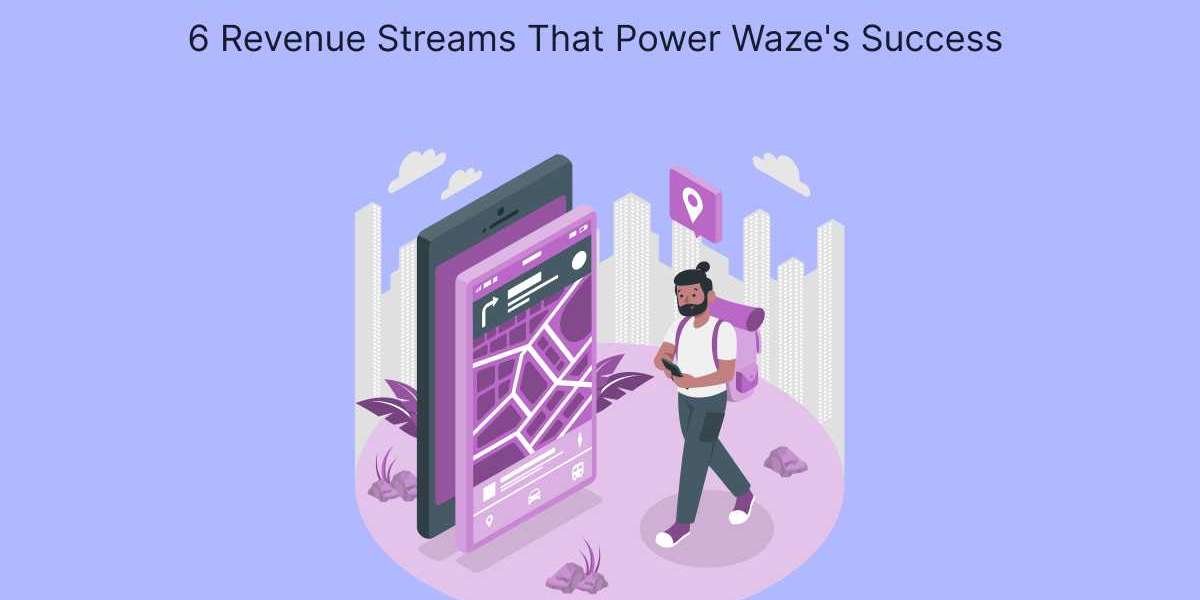Waze, the popular GPS navigation app owned by Google, has become a household name, providing drivers with real-time traffic updates, route optimization, and various user-friendly features. While the app is free to use, it generates substantial revenue through multiple streams. Understanding these revenue streams can provide insights into how Waze maintains its competitive edge and ensures sustainable growth. Discover the secret sauce behind Waze business model! Explore the 6 revenue streams that drive Waze's success and learn how they dominate the navigation app market. In this blog post, we will explore six key revenue streams that power Waze's success.
1. Advertising Partnerships
One of Waze’s primary revenue sources comes from advertising partnerships. The app utilizes location-based advertising, which allows businesses to target users based on their geographical location and route preferences. For instance, when a user approaches a specific location, Waze can display ads for nearby gas stations, restaurants, or other services. This hyper-targeted advertising strategy not only enhances user experience by providing relevant information but also ensures that businesses see a higher return on investment (ROI).
Sponsored Locations
Waze allows businesses to create sponsored locations that appear prominently on the app. These sponsored pins help users discover businesses along their route. For example, a gas station can sponsor its location, ensuring that drivers see it when they are low on fuel. This form of advertising increases foot traffic and drives sales for businesses, making it a win-win situation for both Waze and its partners.
2. Waze Ads
Waze has developed its own advertising platform called Waze Ads, which allows businesses to create targeted ad campaigns within the app. Advertisers can choose to display their ads based on user behavior, such as driving patterns or previous search history. By utilizing this platform, businesses can reach a highly engaged audience, ensuring their ads are seen by users who are actively searching for their services.
Cost-Per-Click (CPC) Model
Waze Ads typically operate on a cost-per-click (CPC) model, where advertisers only pay when users interact with their ads. This model encourages businesses to create engaging advertisements that drive users to take action, whether it’s visiting their website or navigating to their location. The CPC model aligns Waze's interests with those of its advertisers, fostering a mutually beneficial relationship.
3. Data Monetization
Waze collects a wealth of data from its users, including traffic patterns, road conditions, and user behavior. This data is invaluable for urban planners, municipalities, and businesses looking to understand traffic trends and improve their services. Waze can monetize this data by selling insights and analytics to third parties, such as government agencies or private companies.
Traffic Reports for Government Agencies
Cities and local governments are increasingly relying on real-time data to improve traffic flow and reduce congestion. Waze can provide comprehensive traffic reports that help municipalities make informed decisions about infrastructure improvements and public transportation options. By partnering with government agencies, Waze not only generates revenue but also positions itself as a valuable resource for urban development.
4. Affiliate Marketing
Waze employs affiliate marketing strategies to enhance its revenue streams further. Through partnerships with various businesses, Waze can offer users special deals and promotions that encourage them to visit specific locations. For example, if a user is driving and receives a notification about a discount at a nearby restaurant, they may be more likely to stop there instead of their original destination.
Partnering with Local Businesses
Waze's affiliate marketing strategy often involves partnering with local businesses to provide exclusive offers. By collaborating with these businesses, Waze can enhance the user experience while also driving revenue. This approach fosters loyalty among users, who appreciate the value of discounts and promotions and encourages local businesses to engage with the platform.
5. Event Sponsorships
Another revenue stream for Waze comes from event sponsorships. The app can partner with organizations to promote events such as concerts, festivals, or sports games. By leveraging its user base, Waze can provide targeted advertising for these events, helping to increase attendance and generate revenue through ticket sales and sponsorship deals.
Community Engagement
Waze's involvement in community events also enhances its brand reputation. By sponsoring local events, Waze demonstrates its commitment to the communities it serves, fostering goodwill among users. This positive brand image can lead to increased user engagement and loyalty, ultimately contributing to the app’s success.
6. Subscription Services
While Waze primarily relies on free usage, there are potential opportunities for subscription-based services that could provide additional revenue. Although not currently a major focus for the platform, offering premium features or ad-free experiences could attract a subset of users willing to pay for enhanced functionality.
Premium Features
Waze could explore offering premium features such as advanced routing options, personalized travel insights, or enhanced navigation tools. By introducing a subscription model, Waze can diversify its revenue streams while catering to users seeking more advanced navigation solutions. This approach could appeal to frequent travelers or commercial drivers looking for reliable and efficient navigation.
Conclusion
Waze's success can be attributed to its innovative revenue streams that effectively capitalize on its vast user base and the wealth of data it collects. From advertising partnerships and data monetization to affiliate marketing and event sponsorships, Waze has developed a multifaceted approach to revenue generation. Learn from the strategies of a top on-demand app development company. As the app continues to evolve, exploring additional opportunities, such as subscription services, could further enhance its revenue potential. By understanding these revenue streams, entrepreneurs and businesses can glean valuable insights into how to create sustainable and successful business models in the digital age.







